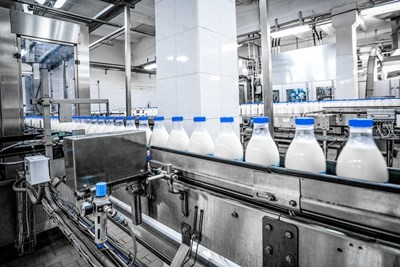
Illustration (Source: Internet)
The food and beverage industry is a sector that is particularly sensitive to any lapses during the production process. As the products coming from the food manufacturing plant are set for consumption, they must be produced under very strict conditions. During the production or packaging, every machine that contact directly with the food, must work efficiently and safely.
A major obstacle you would therefore face as an owner of a food processing plant is how best to ensure that these machines are well-maintained so as not to contaminate the products.
There are several proactive maintenance strategies that a plant might want to adopt to ensure product quality, one of these being total productive maintenance (TPM).
TPM is not just a maintenance tool, it is a lean manufacturing philosophy centered on achieving near-perfect production through no breakdowns, no small stops or slow running, no defects, and no accidents. It demands proactive maintenance to extend the lifespan and reliability of equipment and it does this by empowering all employees to take responsibility for the equipment they operate.
Eliminating Machine-Related Product Defects
Although the goals of TPM may seem almost unattainable (zero breakdowns, zero defects), companies that have implemented TPM are able to see quick improvements in the availability and reliability of their equipment.
For instance, TetraPak reports that after implementing TPM in an Asian diary producing plant, it was able to reduce equipment-related product defects and also reduce claims from the market by 74 percent.
How is this possible? At its core, TPM philosophy says that every operator is responsible for basic maintenance of the machine(s) they operate and only call on the maintenance team when there is an issue beyond their capability. Obviously, when those using the machines on a daily basis are empowered to watch over the equipment, potentially big issues are more likely to be spotted earlier and the general lifespan of the equipment increases.
Remember that creating a high-quality product is largely a function of high-quality systems, processes, and standards. Quality management and focused improvements pillars can help achieve that by forcing companies to focus on continuous maintenance of machinery that will keep these assets clean, safe, hygienic, and efficient.
Fewer Customer Complaints
The concept behind quality management is not complicated: Maintain perfect equipment to achieve perfect product quality.
Through continuous improvements in the quality of the production process, manufacturers can drastically improve final product quality and customer satisfaction.
For example, a potato chip manufacturer in India had been contending with significant packing and product defects and high incidences of customer complaints.
But, after trying other initiatives with little success, it opted to implement TPM. Within a fairly short time, the manufacturer was able to identify where defects were occurring within the production line. To tackle the problem, it assigned quality component tasks for each point in the production.
Some of these tasks included “checkpoints” to monitor factors like excessive oil, high/low moisture, leakage, etc.
As a result, the company is now achieving its core focus of “delighting customers.” As an added bonus, staff also reports increased morale and enthusiasm for the TPM program because it has clearly reduced the headaches they were having due to defects.
Productivity and Quality Office